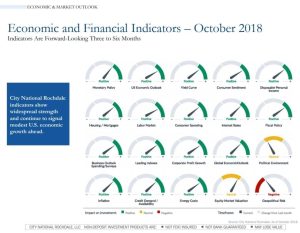
Modern technology has revolutionized the way businesses operate, communicate, and reach potential customers. In this digital age, having a strong online presence is more crucial than ever. Whether you’re a tech startup, a software development company, or an established tech giant, search engine optimization (SEO) should be an integral part of your marketing strategy.
Understanding the Basics of SEO
SEO refers to the practice of optimizing your website and its content to increase visibility and rank higher on search engine results pages (SERPs). When implemented effectively, SEO helps attract organic traffic – potential customers who are actively searching for products or services related to your tech niche.
1. Conduct Thorough Keyword Research
Keywords serve as the foundation of successful SEO campaigns. By determining the most relevant keywords for your tech niche, you can tailor your website content to align with users’ search queries. Utilize keyword research tools like Ahrefs, SEMrush, or Google’s Keyword Planner to identify high-volume, low-competition keywords. Incorporate these keywords naturally throughout your website, including in headings, meta tags, and within your content body.
2. Create Quality Content
In the tech industry, producing high-quality, informative, and engaging content is crucial. Whether you’re writing blog posts, crafting product descriptions, or creating how-to guides, ensure your content is original, well-researched, and provides value to your target audience. Google’s algorithms are designed to identify and reward quality content, so investing time and effort into creating compelling articles or videos can significantly boost your search rankings and conversion rates.
3. Optimize for Mobile Devices
In this mobile-first era, optimizing your tech website for mobile devices is no longer optional. Google prioritizes mobile-friendly websites, and with the majority of internet users accessing the web via smartphones or tablets, failure to provide a seamless mobile experience can negatively impact your SEO efforts. Optimize your website by adopting responsive design, optimizing page loading speed, and ensuring a user-friendly interface across different screen sizes.
4. Leverage Technical SEO Techniques
Beyond keyword research and content creation, technical SEO plays a vital role in improving your website’s visibility and performance. Technical SEO involves focusing on backend elements like website structure, site speed, XML sitemaps, schema markup, and URL structure. By optimizing these technical aspects, you can increase your website’s crawlability, indexability, and overall search engine rankings.
5. Build High-Quality Backlinks
In the world of SEO, backlinks act as a vote of confidence from other reputable websites. When high-quality websites link to your tech site, search engines perceive your content as trustworthy and authoritative. Engage in outreach campaigns, guest blogging, and content collaboration initiatives to acquire backlinks from respected tech publications or influencers within your niche. However, always aim for quality over quantity to ensure your backlink profile remains strong and relevant.
The SEO Secrets Every Tech Business Should Know
Now that you have a better understanding of the foundational SEO techniques, it’s time to unveil some lesser-known secrets that can give your tech business a competitive edge:
1. Harness the Power of Long-Tail Keywords
While targeting broad keywords is important, long-tail keywords provide an opportunity to attract highly qualified leads. Long-tail keywords are more specific and targeted phrases that users often search for when they have a clear intent. Incorporate long-tail keywords within your content to improve your chances of ranking higher for niche queries.
2. Prioritize User Experience (UX)
Google now considers user experience as a crucial ranking factor. Ensure your website offers seamless navigation, intuitive interface, fast loading speed, and optimized images and videos. A positive user experience not only improves your organic rankings but also contributes to higher conversion rates and customer satisfaction.
3. Stay Ahead with Voice Search Optimization
The rapid rise in voice assistants and smart speakers has transformed the way people search for information. With technologies like Amazon Alexa, Google Assistant, and Siri becoming an integral part of homes and smartphones, voice search optimization is no longer a luxury but a necessity. Optimize your content to accommodate natural language queries and leverage structured data markup to enhance your chances of being featured in voice search results.
4. Don’t Underestimate Local SEO
If your tech business relies on local customers, mastering local SEO is crucial. Focus on optimizing your website for local search queries by incorporating location-specific keywords, creating and maintaining accurate business listings on Google My Business, Yelp, and other relevant directories. Encourage happy customers to leave positive reviews, as they contribute to better local rankings and build credibility.
The Conversion Connection: Merging SEO and Conversion Rate Optimization (CRO)
A successful SEO strategy is incomplete without considering conversion rate optimization (CRO). While SEO drives traffic and increases visibility, CRO focuses on improving the percentage of visitors who perform desired actions, such as subscribing to a newsletter, making a purchase, or signing up for a free trial.
By aligning your SEO and CRO efforts, you can create a seamless user journey that not only attracts potential customers but also converts them into paying users. Analyze user behavior, conduct A/B testing, and optimize your landing pages, CTAs, and overall website design to maximize conversions and grow your tech business.
In conclusion, mastering SEO is essential for thriving in the competitive tech industry. By following the foundational principles, incorporating lesser-known secrets, and merging SEO with conversion rate optimization, you can unlock the potential to rank higher, attract organic traffic, and convert visitors into loyal customers.


